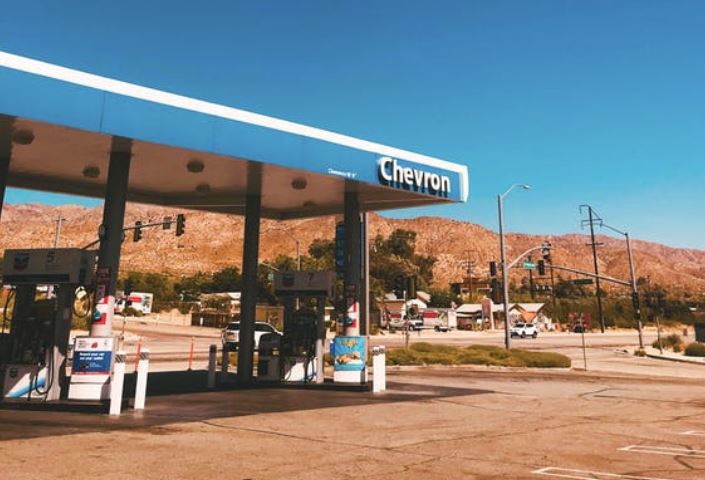If Chevron Can Sell Shares, Why Can’t They Buy Them Back?

Image Source: Pexels
In late January, Chevron announced fourth quarter and full year 2022 results. Chevron earned a record $36.5 billion profit in 2022, more than doubling 2021 earnings. In addition, Chevron increased its quarterly dividend by 6%, and announced a $75 billion stock buyback:
“The Board also authorized the repurchase of the company’s shares of common stock in an aggregate amount of $75 billion. The $75 billion authorization takes effect on April 1, 2023, and does not have a fixed expiration date. It replaces the Board’s previous repurchase authorization of $25 billion from January 2019, which will terminate on March 31, 2023, after the completion of the company’s repurchases in the first quarter 2023.”
The Biden Administration Responds
This stock buyback announcement got immediate attention from the Biden Administration. In a series of tweets, White House spokesperson Abdullah Hasan wrote:
For a company that claimed not too long ago that it was ‘working hard’ to increase oil production, handing out $75 billion to executives and wealthy shareholders sure is an odd way to show it. https://t.co/BKOS3v33BR
— Abdullah Hasan (@AHasan46) January 26, 2023
Companies clearly have everything they need – record profits and thousands of approved permits – to increase production.
— Abdullah Hasan (@AHasan46) January 27, 2023
The only thing getting in the way is their own decision to keep plowing windfall profits into the pockets of executives. https://t.co/1NAA6wezUP
I understand why the White House would do this, but these attacks are disingenuous. Chevron can walk and chew gum at the same time.
The Oil Industry is Increasing Production
Chevron didn’t increase the dividend and share buyback instead of investing in new production. The company did both. Chevron’s capital and exploratory expenditures in 2022 were more than 40% higher than in 2021. Further, Chevron actually reported record U.S. oil and natural gas production for 2022.
The White House response is part of an ongoing war of words with the oil and gas industry. If blame can be shifted to oil companies for high energy prices, then perhaps people won’t be so upset with the Biden Administration. In reality, that’s a big reason the administration engages in this behavior. But, they have also demonstrated some level of ignorance about how the oil and gas industry works, so that may be at play as well.
Consider this. The goal of the Biden Administration is to transition away from oil as soon as possible. Many of their policies could be viewed as hostile toward the oil and gas industry. But the administration is upset that oil companies aren’t investing even more into projects that will likely take more than a decade to pay for themselves.
So the Biden Administration is trying to have it both ways: Work to phase out demand for oil, while complaining that the oil companies aren’t investing enough into producing more oil.
It’s natural to be upset that consumers are paying high prices for gasoline while oil companies are making record profits. It is natural to wonder why they can’t give consumers a break. I will give you a hint. It’s the same reason chicken farmers aren’t currently giving consumers a break on chicken or egg prices. It is supply and demand.
The Biden Administration is demanding more supply, and oil companies are complying. Instead of acknowledging this, the administration complains and pretends they aren’t actually increasing supplies.
In fact, U.S. oil production rose last year to the second highest level on record, and stands a good chance of setting a new record high this year. The number of rigs drilling for oil is 28% higher than it was a year ago. Clearly, companies are investing in boosting production.
What’s Wrong with Stock Buybacks?
Nobody ever complains when a company issues stock. A company says “Here is a chance to own part of this company.” Yet, if a company doesn’t feel the market is placing an appropriate value on the company shares, why shouldn’t they be able to buy those shares back?
For that matter, many of Chevron’s shareholders aren’t wealthy at all. Many retirement accounts hold Chevron shares, so ordinary people trying to save for retirement also benefit from these stock buybacks. But the Biden Administration frames this as a giveaway to wealthy executives and shareholders.
Three years ago, oil companies were hemorrhaging cash. Today, they have excess cash. It’s true that this is because oil and gas prices skyrocketed last year, but the Biden Administration also bears some responsibility for that. Rightly or wrongly, the decision to stop importing Russian oil was a Biden Administration decision that caused those commodity prices to soar. That, in turn, helped drive profits higher.
As I have argued previously, there’s nothing stopping consumers from being owners of oil and gas companies. As Benzinga recently pointed out, an investor who put $1,000 into Chevron on the day after Biden won the election would have $2,477 today, not including dividends. That would go a long way toward offsetting the impact of high gasoline prices. Further, such an owner would also directly benefit from these stock buybacks.
More By This Author:
Energy Sector Predictions For 20232022 Saw The Second Highest Oil Production In U.S. History
The Year In Energy Prices
Follow Robert Rapier on Twitter, more



